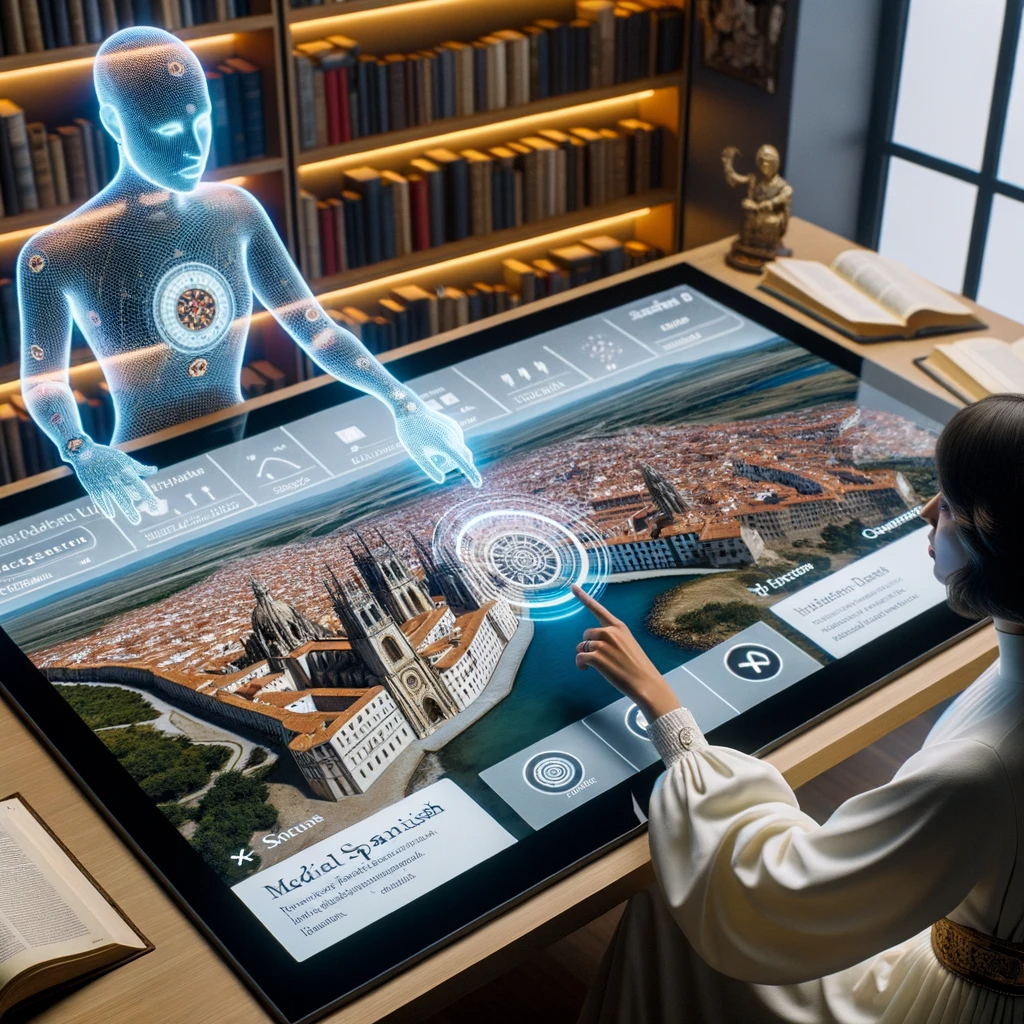
What:
A Proposal for: Beyond the horizon: A human-friendly deployment of artificial intelligence and related technologies HORIZON-CL2-2024 TRANSFORMATIONS-01-06
Why:
The URRACA (Unleashing a Research Revolution with an Artificial Collaborative Assistant: Urraca Project for Ancient and Medieval Studies) project aims to revolutionize the field of historical research by developing a collaborative AI system that focuses on intercultural and interreligious exchange in Iberia during the Late Roman Empire and the late medieval period. The project seeks to answer fundamental questions about human intelligence and consciousness in the context of historical memory. Specifically, it aims to understand what sets humans apart from the technologies they create, especially in the realm of artificial intelligence.
Who:
A Consortium Led by Universidad Carlos III de Madrid in Concert with the Universidad de Alicante, Università degli Studi di Salerno, and Consejo Superior de Investigaciones Científicas (Spain) (Roger L. Martinez-Davila @UC3M, Jaime Alvar Ezquerra, Jaime Molina Vidal, Daniel Tejerina, Francesco Colace, Domenico Santaniello, Ana Rodriguez Lopez)
When:
2024-2027
How:
The URRACA project aims to revolutionize the field of historical studies by integrating advanced AI technologies. Leveraging the OpenAI ChatGPT API, the project will focus on the following objectives:
- Understanding AI-Human Collaboration: Investigate how AI can complement human research in historical studies, particularly in the context of ancient and medieval history. This will involve the use of AI in interpreting large datasets from Roman and Medieval epochs, thereby addressing the critical issue of source reliability.
- AI Curriculum Development: Implement a step-by-step pedagogical approach to train the AI from an undergraduate level to a senior scholar level. The curriculum will include primary written sources, artifacts, and archaeological sites related to ancient and medieval Iberia and beyond.
- Tool Development: Create reliable AI tools that can assist scholars and working professionals in history, archaeology, geography, and linguistics. This will include the development of AI academic personal assistants, thereby bridging the gap between traditional and AI processes.
- Ethical AI Deployment: Analyze the ethical implications of using AI in historical research, focusing on the principles of trustworthy AI. This will include an examination of how AI can be designed to avoid cultural and personal biases, a claim that the project will scrutinize.
- Capacity Building: Develop a robust European capacity for understanding the long-term human and societal implications of AI. This will involve multi-disciplinary collaborations with historians, archaeologists, linguists, and AI specialists.
- Policy Recommendations: Provide well-founded recommendations for European policy in research and innovation (R&I) and other key areas to guide the ethical and effective deployment of AI in historical studies.
Participate:
Interested in learning more and joining the consortium? Email: contact@urraca-ai.org